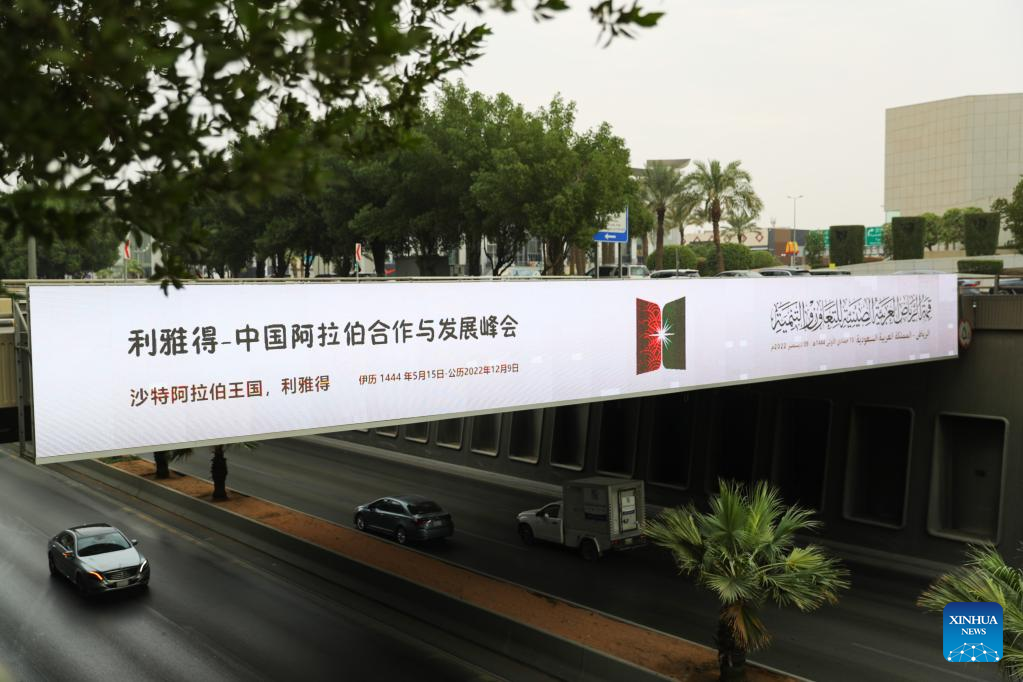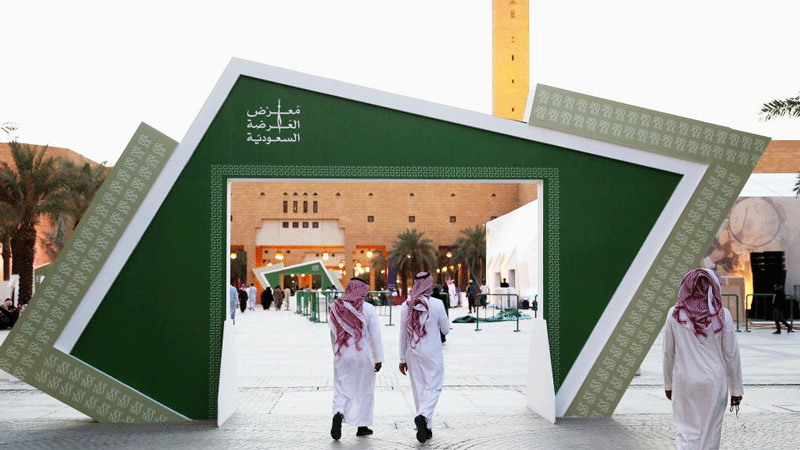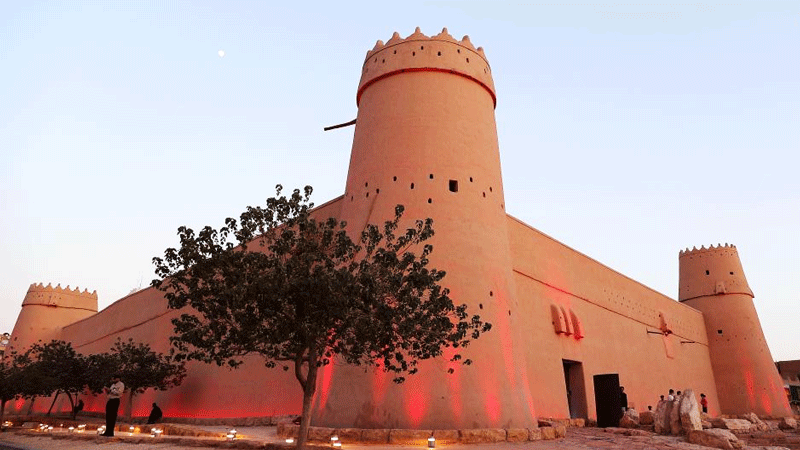Xi’s Saudi trip to open up new prospects for China-Arab ties

This photo shows a screen display about the China-Arab States Summit on a street in Riyadh, Saudi Arabia, Dec. 7, 2022. (Xinhua/Sui Xiankai)
China’s intensive head-of-state diplomacy is set to continue in December, and this time, the focus of attention is Saudi Arabia and the broader Arab world.
Chinese President Xi Jinping arrived here Wednesday afternoon to attend the first China-Arab States Summit and the China-Gulf Cooperation Council summit, and pay a state visit to Saudi Arabia at the invitation of King Salman bin Abdulaziz Al Saud of Saudi Arabia.
The visit is a historic undertaking as both the China-Arab States Summit and the China-GCC Summit are convened for the first time, reflecting a new milestone in relations between China and Arab states.
Xi’s visit will be the largest and highest-level diplomatic event between China and the Arab world since the founding of the People’s Republic of China. It will be an epoch-making milestone in the history of China-Arab relations, Chinese Foreign Ministry spokesperson Mao Ning said at Wednesday’s routine press briefing.
Affected by the COVID-19 pandemic and shockwaves across global energy markets caused by the Russia-Ukraine conflict, as well as the US’ and Western arbitrary sanctions on Russia, the international community faces great uncertainty in terms of economic recovery and national development. The move, which is seen by some observers as Arab countries collectively “looking East” marks a significant diplomatic and strategic adjustment for countries in the Middle East. The landmark summits, which are the first of their kind in contemporary Chinese-Arab history, represent a diplomatic pioneering step by China in the Middle East that will help stabilize the region, promote disputes resolving through dialogues, cushion negative effects that the US’ and Western arbitrary sanctions on Russia have brought to the Arab countries, experts stated.
Observers believe Saudi Arabia is preparing a red carpet welcome for Xi, which would constitute a sharp contrast with the muted reception US President Joe Biden received when he visited the Kingdom in July.
CNN reported that at least 14 Arab leaders will attend the China-Arab States Summit and according to Saudi Press Agency, more than 20 initial agreements worth $29.26 billion will be signed during Xi’s visit to Saudi Arabia.
Enthusiasm for cooperation
The anticipation for Xi’s visit is palpable in Saudi Arabia and the broader Arab world. “The Arab world views China as a loyal friend and effective proponent,” Yahya Mahmoud bin Junaid, chairman of the Riyadh-based Center for Research and Knowledge Communication told the Global Times, noting he expects Xi’s presence in Saudi Arabia and his participation in the China-Arab States Summit and the China-GCC Summit to be “a stepping stone to closer collaboration in order to boost international peace, establish equal relations between countries, based on mutual respect, non-interference in the internal affairs of any country, and enhance cultural existence.”
In recent years, the Arab countries have been actively diversifying their strategic partners to serve economic and security interests, and China’s rise has offered them with new opportunities for strategic partnerships in many areas. Regional observers increasingly believe that China can add positive impetus and balance to regional stability and security.
Nadia Helmy, an expert on Chinese political affairs and professor of political science of Beni Suef University, Egypt, told the Global Times that there are considerable prospects for joint Arab-Chinese cooperation that can be discussed during the upcoming summits, adding that she believes the summits are primarily aimed at discussing ways to promote common development and integrate strategies within the framework of the Global Development Initiative and the Belt and Road Initiative.
Helmy also emphasized the importance of the efforts made by Chinese diplomacy to support Arab issues and identify peaceful solutions to existing crises in the region, and the Arab states are keen to strengthen their relations with China in various fields, which will help establish a new era for Arab-Chinese relations and contribute to creating a multipolar world.
The summits are set to be productive platforms for discussion, Chinese ambassador to Saudi Arabia Chen Weiqing told the Global Times that “China will discuss with Arab and GCC countries to jointly formulate overall future development goals and long-term cooperation plans in various fields, and publish a series of important outcome documents and join hands to build a China-Arab community with a shared future for the new era”.
Deepening China-Saudi ties
In January 2016, President Xi visited Saudi Arabia, during which the two sides agreed to elevate the bilateral relations into a comprehensive strategic partnership. Since then, China-Saudi Arabia ties have entered fast lane of full development.
“The relationship between China and Saudi Arabia is a vital strategic one that stems from mutual respect, non-interference in internal affairs, and mutual visits between the leaders of the two countries,” said Junaid. He added that Xi’s visit implies the depth of the desire to strengthen relations between China and the Kingdom and is expected to yield many benefits in the political, economic, scientific, and cultural spheres.
A Saudi Arabian educator at King Saud University who requested to remain anonymous said that Xi’s visit will be “a beautiful and festive moment.” He told the Global Times that he would “pray for the enjoyable trip for the great president and the great friend,” and is looking forward the two countries to plan and strengthen the relationship that is based on non-interference in each other’s affairs and mutual respect for the international order.
Experts believe Saudi Arabia’s proactive attitude toward enhancing cooperation with China reflects a new paradigm of “looking East” in its foreign policy and the strategic direction of placing higher priority on China.
China-Saudi Arabia relations could become a template for other Arab countries, Meshari Abahusain, a Saudi Arabian who is working as investment director of Saudi Silk Road Industrial Services Limited Liability Company, a Chinese-Saudi joint venture which provides investment services in Saudi Arabia, told the Global Times. He believes as bilateral relations become increasingly mature, all parties and other countries in the Middle East will both benefit and follow.
US anxiety
Xi’s visit and the two summits between China and Arab states come at a time when Saudi-US relations have been strained by issues including Saudi Arabia's rejection of US President Joe Biden's request to increase oil production and disagreement on the Russia-Ukraine conflict. After the Ukraine crisis escalated, Saudi Arabia and other Gulf countries expressed different positions from that of the EU and the US, showing strategic independence and autonomy, displeasing Washington lawmakers and the White House.
China emphasizes the principles of mutual respect, mutual benefits and win-win cooperation in developing ties with Saudi and development-through-peace approach in the region while the US prioritizes human rights and democracy subjects and issues diktats to Saudi and other Arabia countries, which many in the region increasingly do not tolerate, Ebrahim Hashem, a UAE strategist told the Global Times.
Xi’s visit to Saudi Arabia, a traditional US ally, has touched a nerve in Washington. US officials and media are baselessly claiming that China is taking advantage of US row with Saudi Arabia and other Middle Eastern countries to expand footprint and influence in the region, with an intention of “kicking the US out of Middle East,” which only lays bare US anxiety toward improving China-Arab relations, experts say.
“China is not aiming to replace any other country but looking to achieve mutual gains in its relations with the Arab countries and the Kingdom, and therefore it does not pose any threat or challenge to the US,” Junaid said.
The US now founds itself in an embarrassing situation. On the one hand, it is executing a strategic contraction across the Middle East, including the withdrawal of troops from Afghanistan, on the other hand, the Russia-Ukraine conflict has led to an increase in the importance of the region.
“The US is facing a paradox — it wants the Middle East countries to cooperate with it on the Ukraine-Russia conflict, but it has neither ability nor willingness to bring benefits to regional countries, Arab countries are fully aware of this,” according to Liu Zhongmin, a professor at the Middle East Studies Institute of Shanghai International Studies University.
“Arab countries are clear about where their own interests lie. Stable and long-term markets, emerging communication fields, and infrastructure construction such as sea ports are areas that attract them to cooperate with China,” Liu emphasized.
Instead of building relations with Arab nations based on mutual respect, trust, and benefit, some US policymakers still hold hegemonic delusions about the region, and wishfully thinking that they can issue diktats to the Arab world. “They erroneously believe that the Arab region is their playground and that they are entitled to having one-sided relations benefiting them mainly at the expense of the regional nations. The Arabs have the strategic autonomy and sovereignty to decide the extent of their relations with other nations based on their national and regional interests.” Hashem said.
Photos
Related Stories
- Xi sends congratulatory letter to association of PRC national history
- Commentary: Why Belt and Road cooperation matters to stronger China-Arab partnership
- Chinese, Arab media organizations launch initiative to deepen exchanges, cooperation
- China's head-of-state diplomacy injects confidence, strength into world
- Xi's participation in inaugural China-Arab States Summit an epoch-making milestone: spokesperson
- China, Arab countries see deepening people-to-people exchanges
Copyright © 2022 People's Daily Online. All Rights Reserved.









